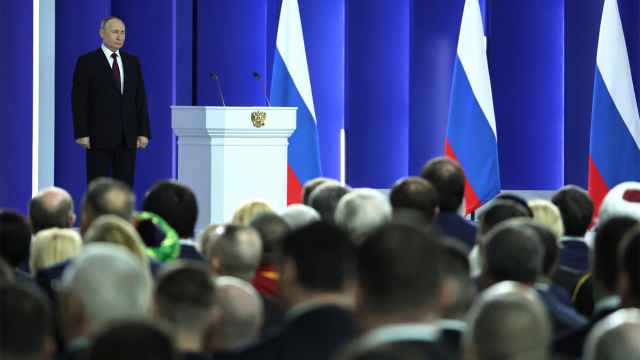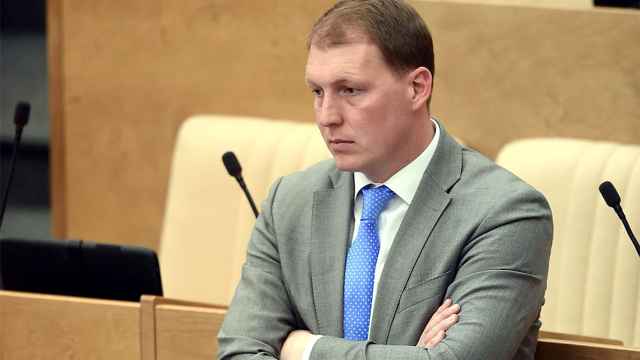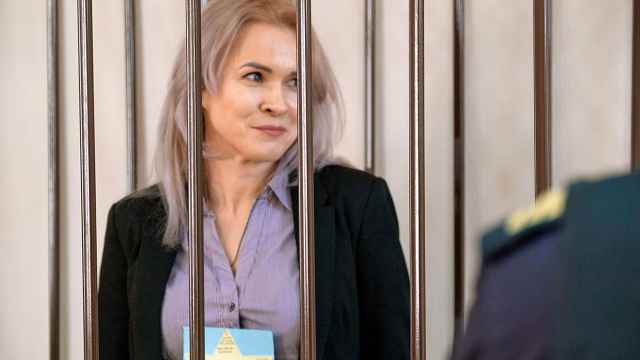The death of the former Transportation Minister and Kursk region Governor Roman Starovoit split Russia’s already fractured opposition.
Supporters of the Anti-Corruption Fund (FBK) were the first to react. Their reaction was predictable: “Another servant of the dictator died.” Leonid Volkov, head of political projects, wrote that it was “the most honest way” to get taken off the list where FBK recommends individuals for sanctioning.
However, the wide range of people on this list raises questions over its purpose in the first place. Remember how the founders of the facial recognition system NtechLab, Artem Kukharenko and Alexander Kabakov, were removed from the list following public discussion about how they did not meet the inclusion criteria, only to be added back on later? Despite them having resigned over disagreement with the firm’s decision to keep operating in Russia, they remain on the list.
The picture is muddied further by Volkov signing letters in 2023 requesting that sanctions on billionaire Mikhail Friedman be lifted. Meanwhile, Friedman is one of the most prominent Russian oligarchs, whose influence on Kremlin policymaking is no less significant than Starovoit’s. Friedman has not made any anti-war statements, let alone taken any concrete actions. Rather, the opposite: he left increasingly uncomfortable London for Israel before hurrying back to Moscow.
The head of FBK’s investigation department, Maria Pevchikh, was more constructive. She offered Putin officials amnesty to defect and spill Putin’s secrets in safety. However, she did not specify who should provide these people with protection from the tyrant’s reach.
A more moderate segment of the opposition, Maxim Katz and Andrei Pivovarov, thought that it was shameful for Volkov to gloat when a person has taken their own life, no matter who they were. Andrei Pivovarov noted that such rhetoric scares away potential defectors who could side with the opposition.
That it is possible and necessary to create alliances with representatives of the regime is not a new idea. It is generally a rational one, tool. But first, we need to understand what such an alliance is and what the principles of its formation are.
A benefit of forming alliances is increasing the pool of resources at your disposal. But that presupposes your allies have strength and support in the first place.
Today, the Russian opposition remains out of politics in every meaningful sense: they have no manifesto or organized structure. Leaders are only recognized as such by virtue of their public profiles. Rather than building institutions, forming parties, or creating movements, many seem content to run YouTube channels. Thus, the idea that they might “scare off allies” is absurd as it assumes they are the sort of actors anyone would want to ally with in the first place.
The key task for the opposition is to become a real political force. Without this, it makes no sense to talk about pacts with former ministers, oligarchs or officials. When the time comes, they will look for allies among those who can support them, or at least give credible guarantees of safety and freedom. This can hardly be expected from YouTubers.
An ideological vacuum is also evident in how the opposition presents itself. FBK works on the principle that everything President Vladimir Putin does is bad. In many ways, that assessment is fair. But criticism should be followed by a constructive agenda. What do we offer instead of what Putin does?
FBK is trying to formulate an agenda through the reconstruction projects discussed at the Yulia Navalnaya Forum. But so far, the forum’s experts have failed to produce a positive, mature plan.
But those who criticize the FBK — including Maxim Katz, Mikhail Khodorkovsky and Andrei Pivovarov — cast themselves as the antidote to the more famous organization. If FBK gloats, they express sorrow. If FBK is confrontational, they strive to be conciliatory. But like FBK, they lack a strategy, a program and any concrete political steps.
The Russian opposition suffers from the same problems as before the war: the lack of a clear political program and a political organization capable of implementing change. Until both appear, all the talk about alliances, strategy and influence will remain empty dreams.
A Message from The Moscow Times:
Dear readers,
We are facing unprecedented challenges. Russia's Prosecutor General's Office has designated The Moscow Times as an "undesirable" organization, criminalizing our work and putting our staff at risk of prosecution. This follows our earlier unjust labeling as a "foreign agent."
These actions are direct attempts to silence independent journalism in Russia. The authorities claim our work "discredits the decisions of the Russian leadership." We see things differently: we strive to provide accurate, unbiased reporting on Russia.
We, the journalists of The Moscow Times, refuse to be silenced. But to continue our work, we need your help.
Your support, no matter how small, makes a world of difference. If you can, please support us monthly starting from just $2. It's quick to set up, and every contribution makes a significant impact.
By supporting The Moscow Times, you're defending open, independent journalism in the face of repression. Thank you for standing with us.
Remind me later.








